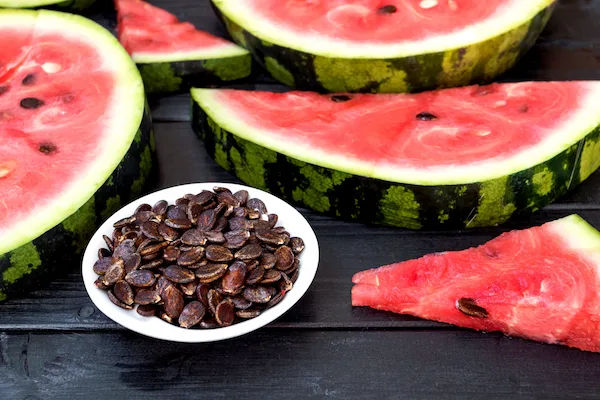Foods to Avoid in Winter Season
Learn which foods to avoid in the winter season to maintain optimal health. Discover how certain foods can affect digestion, immunity, and energy levels during colder months.

Written by Dr. Rohinipriyanka Pondugula
Reviewed by Dr. D Bhanu Prakash MBBS, AFIH, Advanced certificate in critical care medicine, Fellowship in critical care medicine
Last updated on 13th Jan, 2026

Winter is a time when our bodies crave warmth and comfort, often leading us to indulge in rich, heavy foods. While some foods can help keep us warm, others may negatively impact our health during the colder months. Knowing which foods to avoid can help you stay healthy, boost immunity, and prevent seasonal illnesses.
Why Should You Be Careful About Your Winter Diet?
Cold weather slows down digestion, making it harder for the body to process certain foods. Additionally, winter is a season when infections like colds, flu, and respiratory issues are common. Eating the wrong foods can weaken immunity, increase mucus production, and make you more prone to illnesses.
Foods To Limit During Winter
Here’s a list of foods you should limit or avoid during winter to stay healthy.
1. Cold and Raw Foods
Why Avoid?
Cold foods like ice cream, chilled drinks, and raw salads can lower body temperature, making it harder to stay warm. Raw vegetables (especially uncooked leafy greens) may be harder to digest in winter, leading to bloating and discomfort.
What to Eat Instead?
- Opt for warm soups, steamed vegetables, or lightly sautéed greens.
- Drink herbal teas, warm water, or ginger-infused drinks to aid digestion.
2. Dairy Products (Excess Consumption)
Why Avoid?
Dairy products like milk, cheese, and yoghurt can increase mucus production, worsening congestion and cold symptoms. While dairy is nutritious, excessive intake in winter may lead to throat irritation and sinus issues.
What to Eat Instead?
- Use plant-based milk (almond, soy, or oat milk) if you're prone to mucus buildup.
- If consuming dairy, warm it (like turmeric milk) to make it easier to digest.
Consult Top Nutritionists For A Personalised Diet
3. Fried and Oily Foods
Why Avoid?
Winter cravings often include fried snacks like pakoras, samosas, and chips. However, excessive oily foods can slow digestion, cause acidity, and lead to weight gain.
What to Eat Instead?
- Bake or air-fry snacks instead of deep-frying.
- Choose roasted nuts or seeds for a healthier crunch.
4. Sugary Foods and Desserts
Why Avoid?
Sweets, pastries, and sugary drinks can weaken immunity and increase inflammation. Excess sugar also contributes to weight gain and energy crashes.
What to Eat Instead?
- Satisfy sweet cravings with natural options like dates, jaggery, or honey (in moderation).
- Try baked apples or cinnamon-infused warm desserts.
5. Carbonated and Caffeinated Drinks
Why Avoid?
Cold sodas and excessive coffee can dehydrate the body and worsen digestion. Caffeine may also interfere with sleep, which is essential for immunity in winter.
What to Eat Instead?
- Drink warm herbal teas (ginger, tulsi, chamomile).
- Opt for warm lemon water to stay hydrated.
6. Processed and Packaged Foods
Why Avoid?
Ready-to-eat meals, instant noodles, and canned foods contain preservatives, excess salt, and unhealthy fats, which can weaken immunity and cause bloating.
What to Eat Instead?
- Cook fresh meals with seasonal vegetables and whole grains.
- Prepare homemade soups and stews for quick, healthy meals.
7. Excessive Non-Vegetarian Food
Why Avoid?
While meat provides warmth, excessive consumption (especially red meat) can be heavy on digestion and increase cholesterol levels.
What to Eat Instead?
- Balance with lean proteins like chicken, fish, or plant-based proteins (lentils, beans).
- Include warming spices like turmeric, black pepper, and garlic in meals.
Healthy Winter Eating Tips
1. Stay Hydrated: Drink warm fluids like herbal teas and soups to prevent dehydration.
2. Eat Seasonal Foods: Include root vegetables (carrots, beetroots), nuts, and whole grains.
3. Boost Immunity: Add ginger, garlic, turmeric, and honey to your diet.
4. Exercise Regularly: Helps digestion and keeps energy levels up.
When to Consult a Doctor?
If you experience frequent digestive issues, persistent colds, or low energy despite dietary changes, consult a healthcare professional. You can book a consultation or schedule a test through Apollo 24|7 for personalised advice.
Conclusion
Winter is a great time to enjoy nourishing foods, but being mindful of what you eat can make a big difference in your health. Avoid cold, oily, and processed foods, and focus on warm, nutrient-rich meals to stay strong and energised throughout the season.
Consult Top Nutritionists
Consult Top Nutritionists

Dr. Ramalinga Reddy
General Physician
5 Years • MBBS MD General medicine
Bengaluru
PRESTIGE SHANTHINIKETAN - SOCIETY CLINIC, Bengaluru
Dt. Ila Sharma
Clinical Nutritionist
18 Years • Master in food & Nutrition
Gurugram
VIPUL GREENS - SOCIETY CLINIC, Gurugram

Dt. Prabhavathy
Clinical Nutritionist
8 Years • Msc Human Nutrition & Nutraceuticals
Madurai
Apollo Sugar Clinics, Madurai, Madurai
Ms. Bhavana Shetty
Dietician
7 Years • DDHN & Masters in Clinical Nutrition & Dietetics
Bangalore
Apollo Sugar Clinic, Seetha circle bangalore, Bangalore
Dr Sumanth R
General Physician
2 Years • MBBS
Bengaluru
PRESTIGE SHANTHINIKETAN - SOCIETY CLINIC, Bengaluru
Consult Top Nutritionists For A Personalised Diet

Dr. Ramalinga Reddy
General Physician
5 Years • MBBS MD General medicine
Bengaluru
PRESTIGE SHANTHINIKETAN - SOCIETY CLINIC, Bengaluru
Dt. Ila Sharma
Clinical Nutritionist
18 Years • Master in food & Nutrition
Gurugram
VIPUL GREENS - SOCIETY CLINIC, Gurugram

Dt. Prabhavathy
Clinical Nutritionist
8 Years • Msc Human Nutrition & Nutraceuticals
Madurai
Apollo Sugar Clinics, Madurai, Madurai
Ms. Bhavana Shetty
Dietician
7 Years • DDHN & Masters in Clinical Nutrition & Dietetics
Bangalore
Apollo Sugar Clinic, Seetha circle bangalore, Bangalore
Dr Sumanth R
General Physician
2 Years • MBBS
Bengaluru
PRESTIGE SHANTHINIKETAN - SOCIETY CLINIC, Bengaluru




